
Kód: 09689789
North British Review, Vol. 23 of 28
Autor Unknown Author
Excerpt from The North British Review, Vol. 23 of 28: February and May, 1858 Lord Stanhope's able history is a history of the nation, its wars, and its internal policy. Its heroes are the sovereign and the Ministers, who conduc ... celý popis
- Jazyk:
 Angličtina
Angličtina - Vazba: Brožovaná
- Počet stran: 640
Nakladatelství: Forgotten Books, 2015
- Více informací o knize

832 Kč
Dostupnost:
50 % šance Máme informaci, že by titul mohl být dostupný. Na základě vaší objednávky se ho pokusíme do 6 týdnů zajistit.
Máme informaci, že by titul mohl být dostupný. Na základě vaší objednávky se ho pokusíme do 6 týdnů zajistit.Prohledáme celý svět
Mohlo by se vám také líbit
Darujte tuto knihu ještě dnes
- Objednejte knihu a zvolte Zaslat jako dárek.
- Obratem obdržíte darovací poukaz na knihu, který můžete ihned předat obdarovanému.
- Knihu zašleme na adresu obdarovaného, o nic se nestaráte.
Informovat o naskladnění knihy
Zadejte do formuláře e-mailovou adresu a jakmile knihu naskladníme, zašleme vám o tom zprávu. Pohlídáme vše za vás.
Více informací o knize North British Review, Vol. 23 of 28
Nákupem získáte 83 bodů
 Anotace knihy
Anotace knihy
Excerpt from The North British Review, Vol. 23 of 28: February and May, 1858 Lord Stanhope's able history is a history of the nation, its wars, and its internal policy. Its heroes are the sovereign and the Ministers, who conducted the administration of the empire, to whom we ascribe our laws and treaties, and the political adversaries, who, by their counterpoise, checked the Government at every step. It has nothing to do directly with the people itself, which either party affected to represent. But the great peculiarity of the period embraced in these volumes is, that, while it forces aside all the laws of history, and offers personal dislike and resentments as acknowledged substitutes for political principles, a profound undertone of public feeling and opinion may yet be traced as a permanent, though apparently only occasional cause, using for its own purposes the private wrongs and schemes of party leaders, and quietly ignoring, or treating as nought, the obstinacy of bought Parliamentary majorities. The force of public opinion, which has had always a real existence in England, explains what else would be obscure, - the gradual success of Opposition against all the influence of Ministers in the most corrupt of Parliaments. For corrupt it was. Walpole himself was untainted with dishonesty, yet his riotous way of living - his galleries at Strawberry Hill - show what a misty idea persons then had of the distinction of public and private resources. The greatness of the secret service fund, and the continual increase of-new and sinecure posts, prove that the kingdom had to pay for the luxury of its recognised rulers. The same age which saw the exposure of Craggs, was scarcely likely to be free from innumerable instances of corruption in the lower ranks of political life, - the more so when we consider the profusion of boroughs into which the nominees or the scions of rich families were thrust as a provision for life, without respect to their qualifications for a regular and legitimate rise by statesmanship as a profession. Shame, and the intuitive fear of staying in a falling house (though this desertion was itself the occasion of the ruin), at last turned Walpole's majorities into a minority. The country had an instinct that things were not as they ought to be, though Walpole's government was as good, nay, probably much better than Pulteney's would have been. It was fighting the battle against the opposition of the practice introduced by 1689, to the theory which that event had established. For the destruction of the tyranny of the great old Whig houses, it used the pique and jealousies of the same order. For these reasons, it selected a Whig of the first rank to overturn a system of Whig oligarchy, and overlooked the fact that his patriotism had been directed against his old friend by that friend's ingratitude, - furthermore, accepted his motley band of Jacobites or ejected placemen as leaders in the people's cause; for these reasons, it overlooked is avarice and inconstancy of purpose (not, however, of end), and wept about his sickbed at Ingestre; for these reasons, Oxford ran riot whenever the professed Revolutionist triumphed; and the leader of Piccadilly was the favourite alike of the City and of the petty former. About the Publisher Forgotten Books publishes hundreds of thousands of rare and classic books. Find more at www.forgottenbooks.com
 Parametry knihy
Parametry knihy
Zařazení knihy Knihy v angličtině Literature & literary studies Prose: non-fiction Literary essays
832 Kč
- Plný název: North British Review, Vol. 23 of 28
- Podnázev: February and May, 1858 (Classic Reprint)
- Autor: Unknown Author
- Jazyk:
 Angličtina
Angličtina - Vazba: Brožovaná
- Počet stran: 640
- EAN: 9781330794777
- ISBN: 9781330794777
- ID: 09689789
- Nakladatelství: Forgotten Books
- Hmotnost: 844 g
- Rozměry: 229 × 152 × 33 mm
- Datum vydání: 06. July 2015
Oblíbené z jiného soudku
-

Things I Don't Want to Know
306 Kč -

Tolkien On Fairy-Stories
276 Kč -

In Other Words
303 Kč -
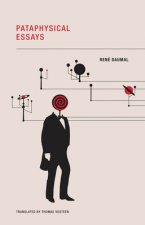
Pataphysical Essays
345 Kč -

Against Interpretation and Other Essays
330 Kč -

On Writing
234 Kč -
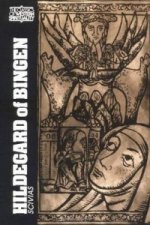
Scivias
679 Kč -

WHITE ALBUM: ESSAYS
399 Kč -

The Pilgrim's Progress
131 Kč -

Slouching Towards Bethlehem
399 Kč -
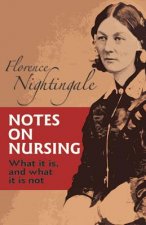
Notes on Nursing
170 Kč -

Man Alone with Himself
185 Kč -

Under the Sign of Saturn
330 Kč -

How to Use Your Enemies
90 Kč -

Ethics
276 Kč -

Upstream
379 Kč -

Republic
183 Kč -

On Love
234 Kč -
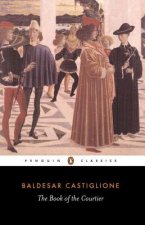
Book of the Courtier
338 Kč -
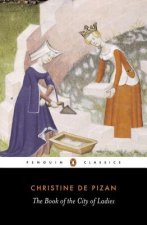
Book of the City of Ladies
302 Kč -

A Cup of Sake Beneath the Cherry Trees
90 Kč -

Years - WINNER OF THE 2022 NOBEL PRIZE IN LITERATURE
389 Kč -

Why I Write
201 Kč -

JEFFREY DAHMER STORY: AN AMERICAN NIGHTM
270 Kč -

Social Contract
136 Kč -

Gratitude
286 Kč -

Rings of Saturn
270 Kč -

Styles of Radical Will
384 Kč -
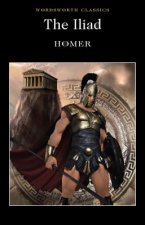
Iliad
106 Kč -
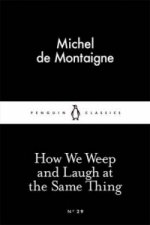
How We Weep and Laugh at the Same Thing
90 Kč -

Modest Proposal
90 Kč -

Room of One's Own (Vintage Feminism Short Edition)
170 Kč -

Essays
338 Kč -

No Time To Spare
348 Kč -

Art of Dreaming
276 Kč -
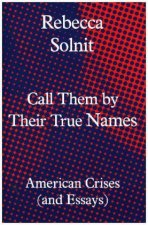
Call Them by Their True Names
357 Kč -
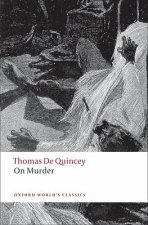
On Murder
223 Kč -

Utopia
301 Kč -
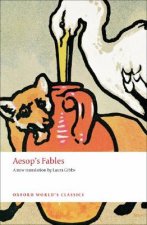
Aesop's Fables
233 Kč -
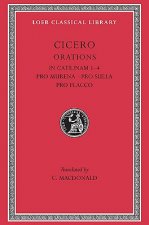
In Catilinam 1-4. Pro Murena. Pro Sulla. Pro Flacco
821 Kč -

You Have Not Yet Been Defeated
357 Kč -
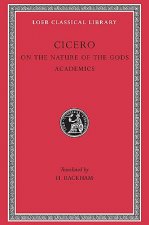
On the Nature of the Gods. Academics
912 Kč -

Ghosts of Birds
391 Kč -

On Duties
925 Kč -

Happy Reader - Issue 12
267 Kč -
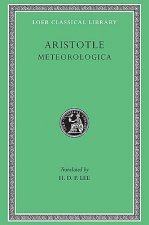
Meteorologica
912 Kč -

Revolutionary Brain
428 Kč -
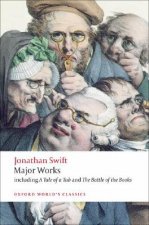
Major Works
457 Kč -

Devotions Upon Emergent Occasions and Death's Duel
362 Kč
Osobní odběr Praha, Brno a 12903 dalších
Copyright ©2008-24 nejlevnejsi-knihy.cz Všechna práva vyhrazenaSoukromíCookies






 Vrácení do měsíce
Vrácení do měsíce 571 999 099 (8-15.30h)
571 999 099 (8-15.30h)